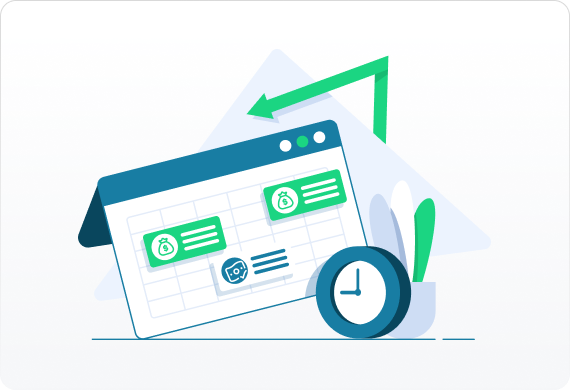Official documents are those prepared by another financial institution, a state licensure board or state or federal taxing authority. They’re not easily faked, and a lender can verify the information they contain with one or two phone calls. For this reason, they’re often the core of your application.
Proof of Identity – Whether it’s a driver’s license, a social security card, or proof of legal residency, a lender must verify your identity. The Office of Foreign Assets Control (OFAC) publishes a list of sanctioned countries and individuals to whom U.S. lenders can’t lend. Typically, this is to prevent money laundering and funding terrorism. If caught lending to anyone of these lists, lenders face serious fines up to losing their bank’s charter. Therefore, they’re required to verify that you’re not on that list. As well, these documents allow them to pull your personal credit score.
Every lender, whether it’s a bank or alternative lender, will require proof of identity.
Bank Statements – Lenders commonly request anywhere from the last three months to the last three years of bank statements. Bank statements present a picture of the cash inflows and outflows of your business. From this, lenders can extrapolate your ability to repay loans, cyclical trends, and the overall stability of your business.
The number of statements requested often depends on the amount of money you’re applying for and the length of repayment period. If you’re taking out a loan that will be repaid over a five-year span, it’s valuable for a lender to see how you’ve done over the past five years. Almost always requested by a traditional lender, if your credit score is high enough an alternative lender might not ask to see them even if you are applying for an unsecured business loan with bad credit.
Tax Returns – Revenues don’t always make up deposits into a bank account. Owner’s investments, personal loans, and cash borrowed from friends could be keeping your business afloat. Tax returns break the information on a bank statement into categories that allow a lender to better judge your business’s health.
The forms completed for a tax return depend on your type of business, i.e. if you’re structured as an LCC or S Corp, which is also information a lender needs. If you’ve only been in business a short time, a lender may ask you to provide your personal tax returns, too.
When applying for a loan with a bank or traditional lender, expect to provide your last three year’s tax returns. Alternative lenders don’t always ask for them.
Credit Card Processing Statements – Many businesses heavily rely on credit card payments to receive revenue. A credit card processing statement shows the lag between sliding the credit card and getting paid.
Alternative lenders set up weekly, bi-weekly, or monthly loan payments. It’s of particular importance to them to see how quickly you receive disbursements from your credit card processors as well as the amounts of those deposits, especially if you are applying for a merchant cash advance.
EIN or LLC number – The EIN or LLC number assigned to your business provides information to a lender on how your business is structured. S. Corp’s, sole proprietorships and LLC, each offer different legal protections. The protections that surround your business or your personal assets if you’re pledging them as collateral, impact the safety of funds lent.
A word of advice; if you’re trying to build business credit separate from your personal credit, taking out a small business loan under your EIN or LLC number is an easy way to do it.
It’s not always required, but if you do have an EIN or LLC number banks ask for it as a matter-of-course. Practice varies among alternative lenders.
Business License – Many industries, such as restaurants, hair salons or pet care shops, require licenses to operate. If you’re not in compliance with local licensing regulations you could find your business shutdown unexpectedly, which could in turn impact your revenues and repayment ability. Lenders want to know if you’re operating legally.
This number is searchable on many state commerce websites, or an underwriter can call the state and verify if you’re current on business tax payments. However, unless you’re asking for an extremely large sum of money a lender is unlikely to go to these lengths.
Proof of Ownership – if you’ve provided them with a business license and other documents, it’s less likely that a lender will request proof of ownership of your business. Lenders won’t just ask for proof of ownership of your business, however. If you’re pledging an asset as collateral, whether it’s your residence, a building or other large fixed assets, you’ll need to prove that you have the legal right to pledge that asset.
Proof of Length of Time in Business – If you’ve been in business for ten years, you’re a better risk than a business that’s only had its doors open six months. Demonstrated longevity implies that you’ve been successful at generating revenues and satisfying creditors.
Sometimes a lender asks for an LCC or EIN number because they can look up when it was issued and verify how long you’ve been in business. This information is less relevant for short-term loans.
Leases – Your business could otherwise have excellent financials but if you’re a brick and mortar business and unexpectedly lose your space you could be forced to close down. A commercial lease allows you to remain operating in a building even if it’s sold. If your lease has three years left on it, a lender is reasonably assured that you’ll remain in operation.
If you’re applying for a short-term loan, the lender probably won’t need this information.
Information on Any Other Loans Outstanding – While listed on your credit report, a credit report doesn’t show the loan’s terms. Subordination clauses, repayment schedules, and default penalties all impact your business’s ability to repay another lender.
Plan on sending in copies of the loan documents related to other small business loans and contact information for those lenders. You might have to sign a form authorizing those lenders to release information to the bank where you’re applying. While other loans outstanding don’t automatically disqualify you from obtaining more credit elsewhere, too many loans or loans that are in default will raise red flags.
Short term business lenders might not care as long as your cash flow and financials demonstrate that you can repay their loan, too. More conservative traditional lenders and banks usually err on the side of requesting more information than needed, and will want to see these documents.






